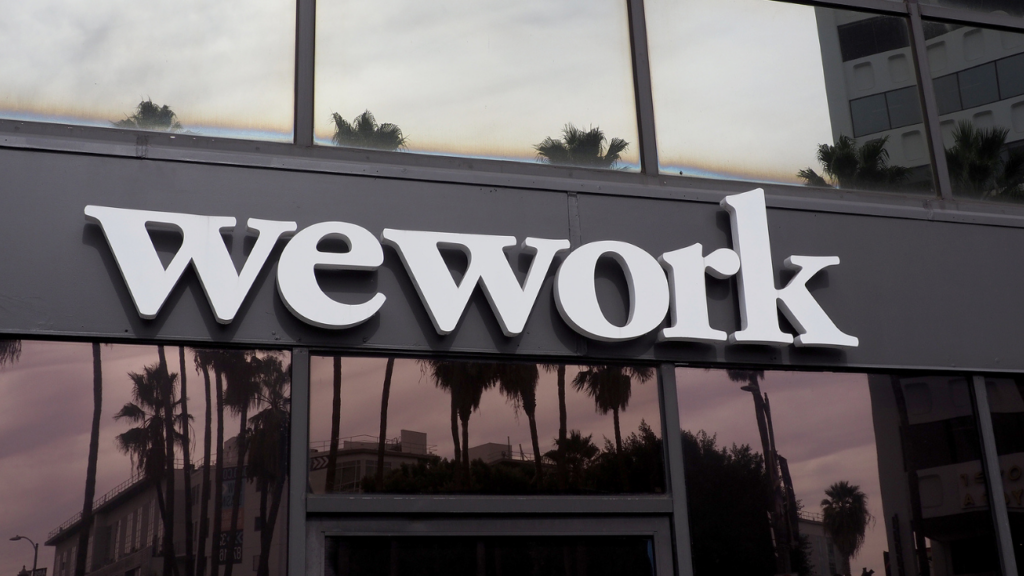- Integrating technology into coworking spaces further enhances productivity.
- While there are various tools for collaboration and communication, analytics and productivity, there is one tool that stands out in its potential to transform coworking spaces: blockchain technology.
- Both blockchain technology and coworking spaces are based on the principles of collaboration and decentralization.
Coworking spaces have revolutionized the traditional office setting by creating an environment that promotes work-life balance and fosters connections among experts with complementary skills.
To further enhance productivity, technology has been integrated into these spaces. While there are various tools for collaboration and communication, analytics and productivity, there is one tool that stands out in its potential to transform coworking spaces: blockchain technology.
Let’s explore how coworking spaces can benefit from blockchain development and unlock new possibilities for their members.
Blockchain and Coworking: Exploring Common Grounds
Both blockchain technology and coworking spaces are based on the principles of collaboration and decentralization. Blockchain is a revolutionary technology that enables data to be organized in a decentralized manner, thereby eliminating the need for a central authority or intermediary. On the other hand, coworking spaces are designed to provide a decentralized environment for professionals from different fields to work together and collaborate.
The two phenomena share a lot in common, and when combined, they can create a powerful synergy. Just as blockchain enables secure and transparent transactions without the need for intermediaries, coworking spaces allow for the sharing of resources, ideas, and expertise without the need for a hierarchical corporate structure.
In essence, blockchain technology and coworking spaces are both about breaking down traditional structures and empowering individuals to work together towards a common goal. By embracing blockchain technology, coworking spaces can enhance their collaborative and decentralized ethos.
How Coworking Spaces Can Benefit from Leveraging Blockchain Technology
Coworking spaces can benefit significantly from developing and implementing blockchain technology. Here are some ways in which coworking spaces can leverage it:
1. Secure and Efficient Transactions
Blockchain technology can enable coworking spaces to have secure and efficient transactions without the need for intermediaries. This can include transactions such as payments, contracts, and agreements. By using blockchain, coworking spaces can ensure that all transactions are transparent, tamper-proof, and immutable.
2. Decentralized Data Management
Blockchain technology can provide a decentralized data management system for coworking spaces. This can include storing and sharing member data, keeping track of bookings, and managing resources. A decentralized data management system can enhance the security and privacy of member data, reduce the risk of data breaches, and improve overall efficiency.
3. Smart Contracts
Blockchain technology can enable coworking spaces to use smart contracts to automate processes such as bookings, payments, and resource allocation. Smart contracts can eliminate the need for intermediaries, reduce the risk of errors and fraud, and increase overall efficiency.
Smart contracts are self-executing contracts that run on the blockchain network. For example, a smart contract can be programmed to automatically book a coworking space for a member when they make a payment. The contract can also be designed to allocate specific resources, such as a conference room, to a member based on their membership level or availability.
4. Shared Ownership
Blockchain technology can enable coworking spaces to offer shared ownership models to their members. By using blockchain-based tokens, coworking spaces can offer ownership shares that are transparent, tradable, and accessible to all members. Shared ownership models can create a sense of community among members and promote collaboration.
5. Community Engagement
Blockchain technology can provide coworking spaces with a platform for community engagement and collaboration. This can include creating a blockchain-based social network for members, hosting events and meetups, and offering rewards and incentives for community participation.
Examples of Coworking Spaces Using Blockchain Technology
There are several examples of coworking spaces that use blockchain technology to enhance their operations and provide additional value to their members. Here are a few examples:
1. WeWork

WeWork, a global leader in flexible workspace solutions, is accepting select cryptocurrencies as payment for its services. By partnering with BitPay and Coinbase, WeWork has expanded its payment options to include Bitcoin, Ethereum, USD Coin, Paxos, and several other cryptocurrencies.
2. Full Node

Full Node is a Berlin-based coworking space that serves as an anchor for blockchain companies. It was established as a collaboration between Gnosis and Tendermint to create a supportive community for the growing blockchain industry.
Full Node offers specialized services such as legal and financial advice, mentorship programs, and networking events, with a focus on developing blockchain technology as a mature technology.
The workspace is designed to facilitate the curation of blockchain infrastructure and offers space for experimentation with blockchain-based services. Full Node aims to partner with other blockchain coworking spaces worldwide to promote the development of decentralized technologies and applications.
3. The Blockchain Centre

The Blockchain Centre is the world’s first non-profit blockchain community hub and coworking space with locations in Melbourne, Shanghai, and Lithuania. It aims to promote blockchain education, encourage the adoption of the technology, and provide resources to entrepreneurs and startups.
The centers connect schools, universities, corporations, city councils, and governments to create more opportunities for blockchain development. It offers consultation services to its members on Initial Coin Offerings (ICOs) and security and hardware devices for cryptocurrency traders.
The center emphasizes transparency in building trust with investors, and its members have grown in funding and team size faster than those in many other industries. The Blockchain Centre also retains a strong relationship with the government to drive the growth of its member companies and establish itself as the pivotal voice in the blockchain community.
4. Primalbase

Primalbase is an operator that creates cryptocurrencies specifically for shared workspace. The company offers digital tokens called PBT that allow users to share, sell or rent workspace.
Primalbase CEO, Ralph Manheim, emphasizes the company’s goal of building a solid infrastructure for the tech industry and creating a unique and efficient working process. The company’s investment in such infrastructure benefits token holders by providing a shared workspace that encourages creative interaction in communal areas.
Through their cryptocurrency-based model, Primalbase seeks to bring the future of work closer and inspire the tech industry in a collaborative and innovative environment.
To Take Away
The synergy between coworking spaces and blockchain technology offers a promising future for the workspace industry. The adoption of blockchain-based systems in coworking spaces can enable members to work in a more secure, decentralized, and transparent environment, with greater access to diverse resources and opportunities.
As coworking spaces continue to evolve to meet the needs of modern workers, the integration of blockchain technology may prove to be a critical factor in their success.
















